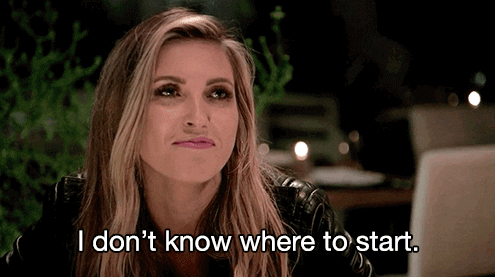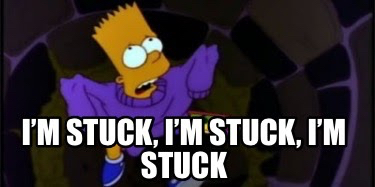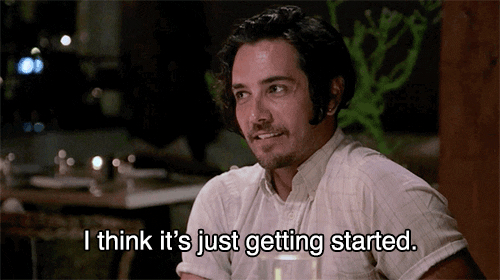
“Real consciousness implies the impossibility of perceiving the ‘untested feasibility’ which lies beyond the limit-situations. But whereas the untested feasibility cannot be achieved at the level of ‘real [or present] consciousness,’ it can be realized through ‘testing action’ which reveals its hitherto unperceived viability.”
—Paulo Friere, Pedagogy of the Oppressed
Hello, gorgeous! Welcome back to another installment of The Long Conversation!
Want to write a new nonfiction essay but don’t know where to start, huh? Well, our last two posts dealt with two key opportunities (and emotional challenges) we all have in writing: finding your voice and writing without shame. If you’ve read those, you’ve made a lot of progress in getting your next writing project going!
I shared exercises in our last posts, but this week, it’s time to really put our theory to work. I’ve got your keyword brainstorming exercises, your freewriting exercises, a TON of prompts I love, and even more suggestions to get your ideas flowing and get out of your own way!
You can and should turn back to this post as much as you need to, whenever you need to. This is a paid post for subscribers, so click this button if you want to get the goods!
First things first
This is not a step-by-step manual, but a collection of prompts, exercises, and get-out-of-your-own-way-isms to help find your next essay idea. Read through the whole thing before you get started, and over time, try everything. You may decide that keyword brainstorming followed by freewrites works every time, or you may prefer starting with freewrites and using the list of questions as a prompt instead of a keyword.
Before you take on any of these exercises, get out of “work” mode. Writing by hand is often the best way to get out of the judgmental space of our work lives and enter into a more creative “flow” state. If writing by hand is not available to you, use whatever tool you’re comfortable with, but try changing up your location. If you normally work in a certain area of your house, try moving to the kitchen, the couch, the bed, or the backyard. If moving isn’t available to you, no problem—take a slow breath and close your eyes for thirty seconds, setting an intention for what you want to get out of the next hour or five minutes of writing.
I’ll help you, little buddy.
Keyword brainstorming
- Grab a piece of paper and a pen or pencil. If writing by hand is not available to you, use whatever tool you’re comfortable with.
- Brainstorm ten keywords related to a subject or feeling that has interested you or occupied space in your mind lately or at some time in the past, or perhaps something that’s been in the news and is occupying space in the world or in a field you’re interested in. But caution: these should be very large concepts, like “sustainability,” “productivity,” “soul,” “hero,” “art,” and “honesty.” Think BIG.
- For each keyword, free associate for five minutes, surrounding the keyword with other words and thoughts that come to mind.
- Reviewing your free association work, focus in on one keyword that has the most interesting material around it.
- Looking at that keyword and its surrounding material, write down five questions related to what you’ve laid out.
- Try the mining process: Looking at everything you wrote down around your first keyword, choose one of the words or phrases and spend five more minutes writing free-associative concepts and thoughts. Keep going for as long as this feels productive.
- Do not judge yourself or stop yourself from writing something down no matter how absurd or seemingly unrelated to the initial keyword. This exercise is not about controlling the direction your notes take. Be a boat on the sea of your mind, and let the wind (your whims!) carry you.
- Whether or not you’re writing by hand, this exercise may be more about lists than word clouds, and that’s okay! Some brains work in lists, some work in space. You may even find yourself doodling instead of writing, and that’s just fine—doodles are feelings. Just record what occurs to you or the feelings that come up as you stare at these big concept words, and don’t judge whatever it is.
Freewrites
- Go back to your Big Ten keywords (or something that comes up in the free-association or mining process) and pick one at random (or pick the one you’re drawn to the most—hey, look at that, you’re already narrowing in!). If you’re not into keywords, start with one of the questions from our list. (For more on what it means to “be drawn,” see last week’s newsletter under “Kerouac’s Rules for Writers and This Week’s Exercise”!)
- If it is available to you, write by hand using pen or pencil on paper. A laptop or other digital tool is okay too, but if it’s a work computer, try and do this in a space you don’t normally work in. Your physical space can make a big difference.
- For five or ten minutes, write about the broad topic you chose, and don’t stop writing! (If you don’t have that much time, 1-2 minutes is better than nothing!)
- This is your madman stage—do not judge what you’re writing, and do not self-edit. Just keep your pen or pencil on the page (or fingers on the keys) and keep going.
- Don’t worry about filling in logical gaps or adding facts and figures. Write in sentences or in phrases or in clips or in lyrics, just keep going.
- If you really can’t think of anything, write this: “I can’t think of anything to say I can’t think of anything to say I can’t think of anything.” Your brain will be thinking for you while you write that, and soon you’ll have something else to say.
- Read through what you wrote and see if anything jumps out at you. If nothing interests you, repeat the process with the next keyword, and the next, until you find something. Believe that you will.
- Invisible freewriting: If you’re writing on a laptop (or you can repeat this exercise both on paper and on your computer), try “invisible writing”: dim the screen so you can’t see what you’re typing. This can help take the pressure off and put you in a more non-judgmental (aka madman) flow state. This is particularly helpful if you’re in an office or using a computer that you usually use for work, where you might be primed to self-edit or see process as performance.
- Looped freewriting or mining: After your first freewrite, read through and pick one word, phrase, or sentence that jumps out at you, and use that as the prompt for your next five-to-ten-minute freewrite. Then look back at that one, and pick another word, phrase, or sentence, and start a new freewrite. Repeat until you find a focused idea or a topic that you could keep writing about for a long time (or as long as it is productive).
- Remember that not finding the idea right away doesn’t mean you’ve failed. This is like the scientific process—proving that something doesn’t work (or won’t work right now) means you can move on. It’s all part of the process.
Questions to ask yourself
Keywords don’t work for everyone. Sometimes we just need to be asked the right question. These questions can help spark that great idea. (Soon, we’ll talk about how your essay format can influence and inspire your topic choice!)
- What’s something I experience regularly or always that might not be shared by others?
- Is there something I regret from my past that I want to understand, or help others avoid or recover from?
- Is there something I usually disagree with people about? It could be as (seemingly) small as “bananas are a bad fruit” or as (seemingly) big as “I don’t believe America should have a president.” (“Is eating a banana for breakfast an ethical choice” is like the first question in every college ethics course—the way you answer it might be pretty revealing, especially if you haven’t thought of this before! Think of systems-level analyses! Think of the rhetoric of “individual choice”! DM me on Twitter about this!)
- What are you skeptical of that many people accept as true?
- What do you accept as true that many people are skeptical of?
- Something keeping you up at night? What do you think about when you can’t fall asleep? This might not be an idea, but a phenomenon (maybe when you can’t sleep, your mind goes to weird places. Where? Why? What can you investigate there?)
- What would you write about if you could publish something anonymously in a major publication?
- If you could write an essay that you could guarantee one person would read—someone famous, someone powerful, someone you have unfinished business with from your past, someone long gone—who would it be and what would you write?
- Think of a strongly held belief and ask yourself how you came to believe it.
- Think of a strongly held belief or a topic (broad or specific) that is important to you, and ask yourself why other people don’t believe it or don’t care about it—maybe one, specific person.
- Ask yourself what seems obvious to you, and try and write about that. This is a lot harder than it sounds, and it can lead to a lot of rich essays. What seems like truth to you is not obvious to others, guaranteed.
- Look in: Think of something you really care about (or the topic you’ve already chosen!) and try to think down into the smallest unit of representation of this topic. For example, if you really care about the sea (BIG), what is the smallest unit of reality that represents the sea (PLANKTON, A RAINDROP, MICROPLASTICS), why the sea matters to you, or what the sea means. Try to take a nonjudgmental poetical approach to this investigation. Freewrites, lists, and drawings can all help here.
- Look out: Think of something you do each day and play out its effects, and what had to have been true to make it possible, as far as you can go in both directions. For example, what is the significance of having a banana for breakfast? What caused that banana to make it to your table? What happens in your life because of your choice to eat it every day? If others do this too, what happens in aggregate? Consider all the bananas and all the breakfasts and all the days.
- Look forward: Think about something you really care about and ask yourself how it might change—or not change—in the future. What is likely and unlikely to happen?
- Particle, wave, field: One of my favorite prompts! Similar to Look in/Look out but a bit more conceptual, this exercise is in thanks to Young, Becker, and Pike. Pick a topic you’re considering writing about, even if it’s still very broad, and answer the following:
- “In what ways can this issue be considered a particle, that is, a discrete thing or a static entity?
- How is this issue a wave, that is, a moving process?
- How is this issue a field, that is, a system of relationships related to other systems?”
Still having trouble figuring out what to write about next?
- Take a walk.
- Seriously, take a walk if walking is available to you. Walking has been proven to increase creative ideation both during and directly after the walk.
- Take a drive and talk to yourself in the car. Record it.
- If walking and driving are not available to you, try and just spend some quiet time outside or otherwise away from your workspace.
- If you’re not already writing in a journal for a short time every day, start. You never know what might make its way onto the page when you’re not paying attention.
- If you already have a journal, take a look back at it and see if anything jumps out at you. A question that comes up repeatedly, an observation that you’d like to expand and explore, or something else.
- If you’re not already doing it, keep a small journal or notes app open on your phone during the day (and by your sleep space at night!), where you can write scraps of thoughts, daydreams or nightdreams, and things you overhear, as well as ideas or questions you can’t pursue in the moment. This form of note-taking can be very productive when you’re looking for inspiration for your next great idea.
- Stop thinking about it. Go do something fun. Do something that’s rewarding and focused and doesn’t take a lot of extraneous brain power, like knitting or puzzling, and let your mind wander. Keep a notebook nearby.
- Go-carts.
- Trick yourself into writing about something you care about by just writing period. Moving your writing muscle, no matter what the topic, will remind you that it isn’t actually impossible. And who knows? What you pick could be a great topic after all. A few prompts:
- Do something of service to others. Write about it.
- Try picking up a language, trying a new tool, take the first step in learning a new instrument. Take notes on what you’re feeling as you try something you don’t know how to do or how to use. Write down what you learn.
- Pick a random topic you know nothing about—the history of dog breeding, what it takes to become a professional curler, oranges—and start learning about it. Write down what you learn.
- Think of a memory you have very strong attachment to. Write about it.
- Try writing down all the senses associated with that memory. Write into each sense.
- If someone else was present for this experience, write down what you think they thought at the time.
- Write about what you might be getting wrong about that person.
- Write about what you might be getting wrong about the memory.
- Bring your vaguest idea to someone you trust, and talk it out with them.
- This can be your workshop group, your editor (hi!), your partner, or a friend or colleague you respect. Ask people what they think is interesting about the vague topic or idea, and ask what they would want to know about the topic or idea, what questions they would like answered. Or don’t ask them anything, just listen and wait and keep listening. If this conversation sparks anything in you (and it probably will), follow the spark.
- Ask all those questions again but of someone who doesn’t talk back, like a dog or teacup or rock. Just sit with the silence and the self receiving it. Be antenna.
- Chill. Writing is not an emergency.
- Be patient. Do something boring.
- Read. Read. Read.
- Read in your genre.
- Read outside your genre.
- Re-read work that inspires you.
- Read work that you hate and try to articulate why.
- Read in the morning, and read something different in the evening.
- Read a cereal box.
- Read a magazine.
- Read something you’ve written before that you’re proud of.
- Read on paper if that is available to you. Just read.
- Because when you really can’t write, you still have a page to go back to. One that’s, miraculously, already filled in. Reminding you that it’s possible, and not every page is a blank one.
- Tune in next week for more questions and exercises to spark your next great idea!
- Remember Rachel’s rules for writers: Writing doesn’t have to be smart. Writing can be dumb. People are allowed to be dumb. Being dumb is how you start. Ask the most basic questions you can think of. Let being uninformed be your inspiration. Being dumb allows for discovery. Being smart leads to judgment. Don’t write to prove something. Write to learn something.
Actually, The Hills was cancelled in 2010.
Song of the week!
My Hands, Gray Reverend
So, a person I was involved with for a while got married this weekend, and it was like, whatever, right? Feelings. Luckily, I was prepared. The day before the big news arrived in my Instagram feed, I’d been speaking with a friend of mine (I’ll call him Jake) about his present relationship troubles. Jake was having a hard time remembering who he was before he fell in love—who the hell was he supposed to be if he wasn’t loved back? So I gave him the same advice he’d given me seven years earlier (old friends are the best) when the person I wanted more than anything told me to fuck off: Listen to the music you loved most before you ever met them.
Music was a big part of both our past relationships, so this wasn’t easy to disentangle! It took Jake a while to figure out the right music that would bring him back to the self that’d been there all along, the favorite song of the companion self, the soul song, the soul itself, but he did find it, and I’m really glad he did, and I’m sharing it with you now.
L.D. Brown is the musician behind Grey Reverend. “My Hands” was written after Brown was diagnosed with focal dystonia, a neurological condition that affected the use of both his hands. Jake took me to see him live ten or so years ago, and I’ll never forget watching Brown play this song from just a few seats away. Everyone there together for him and with him, smiling through tears. It’s what music is for.
Bonus: L.D. Brown performing with The Cinematic Orchestra on the heart-wrenchingly beautiful track “To Build a Home” (Friday Night Lights fans will know this one, with Patrick Watson)
Ask Me Anything!
What topics on writing and editing will TLC cover? I want to answer your questions directly! If there’s anything you’ve wanted to ask an editor, or me specifically, please email me at [email protected] (or post in the #writing channel if you’re a paid subscriber in our Discord). I won’t be able to respond to everyone directly, but I will choose one of your questions to address in this space each week, and will thank that person by name unless you request to be anonymous. Questions about process, maybe something you’ve heard writers talk about but you don’t know what it means, or even advice stuff like what’s a great book to read when you’re falling in love? or how do I get into poetry? I can’t wait to see what you come up with!
Have a lovely week, everyone!
Rach
Not a subscriber? Sign up for access to our Discord and all our newsletters and podcasts, including: Glassy (tech and gender from the majestic Taylor Majewski), Cybernaut (who is the internet, anyway? with brilliant Canadian Fadeke Adegbuyi), Napkin Math (business stuff with Evan Armstrong, the hardest working man in newsletters), Almanack (finance stuff with Nat Eliason, the nicest boy in crypto), and so much more!
The Only Subscription
You Need to
Stay at the
Edge of AI
The essential toolkit for those shaping the future
"This might be the best value you
can get from an AI subscription."
- Jay S.
Join 100,000+ leaders, builders, and innovators

Email address
Already have an account? Sign in
What is included in a subscription?
Daily insights from AI pioneers + early access to powerful AI tools













Comments
Don't have an account? Sign up!